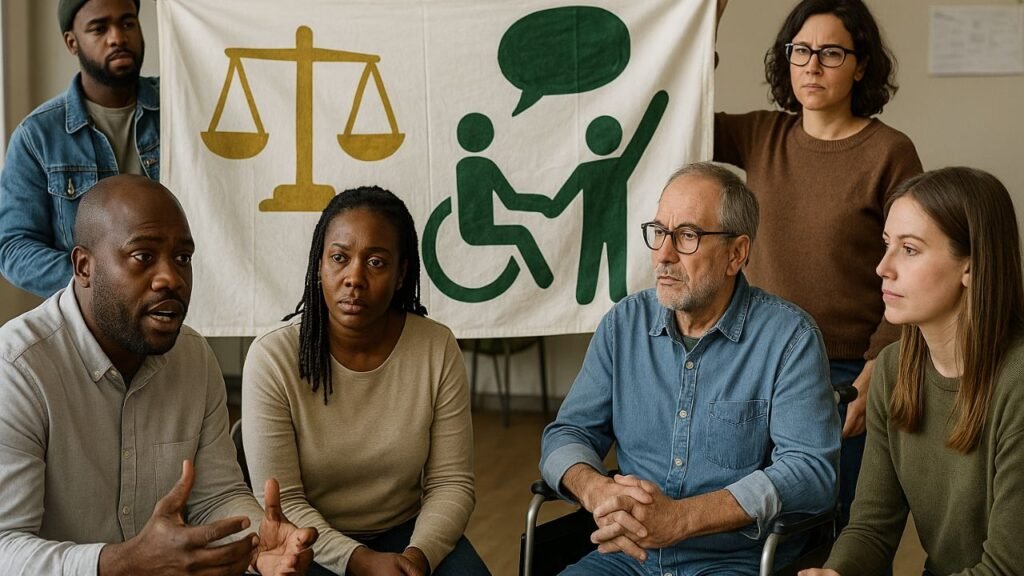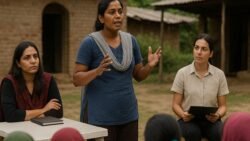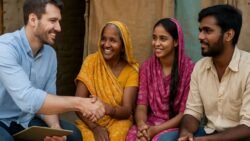Equal Opportunities – Creating equal opportunities is at the heart of building sustainable and inclusive societies, and this vision is central to the mission of Zenys. Rights-based programs and strong community advocacy play a vital role in ensuring marginalized groups gain access to essential services, resources, and opportunities. By promoting equality through human rights frameworks, communities can address systemic barriers such as gender discrimination, poverty, and lack of access to education or healthcare. Globally, organizations and governments are increasingly adopting rights-based approaches that empower individuals to participate actively in shaping their futures. For example, the United Nations highlights how rights-based development strengthens accountability and inclusivity (source). Zenys leverages these approaches to support women, youth, and vulnerable groups by focusing on advocacy, awareness campaigns, and grassroots interventions. Through collaboration with local communities, these programs not only provide immediate relief but also encourage long-term resilience and empowerment.

Why Rights-Based Programs Matter in Today’s World
Rights-based programs are critical because they shift the focus from charity to empowerment. Instead of temporary aid, these initiatives ensure individuals are recognized as rights-holders with entitlements that must be respected and fulfilled. For instance, access to education is not just a privilege but a right, affirmed by global frameworks like the Universal Declaration of Human Rights (source). When organizations implement rights-based approaches, they build mechanisms for accountability, ensuring that governments and institutions are responsible for delivering essential services fairly. At Zenys, such programs address inequalities faced by rural women and youth, giving them tools to break cycles of poverty and exclusion. This shift creates sustainable change, where communities can stand on their own rather than depend on external assistance. By aligning with global goals like the Sustainable Development Goals (SDGs), rights-based initiatives ensure progress is both measurable and inclusive.
The Power of Community Advocacy
Community advocacy is the engine that drives rights-based programs forward. It ensures that marginalized voices are heard in decision-making spaces, from local councils to national policy forums. Advocacy empowers people to demand justice, equitable policies, and fair distribution of resources. For example, grassroots advocacy has been central to campaigns for gender equality and social protection programs in South Africa and India (source). Zenys emphasizes advocacy by mobilizing communities to take collective action, whether through awareness drives, workshops, or direct engagement with policymakers. These activities give communities the confidence to challenge discriminatory practices and demand reforms. Moreover, advocacy builds solidarity, uniting diverse groups under shared causes like education access, healthcare rights, or youth employment. The ripple effect is transformative: empowered communities not only secure their own rights but also become advocates for others, spreading the culture of justice and equality.
Creating Lasting Impact Through Collaboration
Lasting change requires collaboration between communities, NGOs, and governments. Rights-based programs succeed when they connect advocacy efforts with practical interventions. For instance, linking women’s empowerment campaigns with skill development programs ensures beneficiaries not only know their rights but also gain the capacity to act on them (source). Zenys strengthens such linkages by working at both policy and grassroots levels. Collaborative partnerships help amplify community voices in national dialogues, while capacity-building programs give individuals practical tools to uplift themselves. Furthermore, collaboration opens access to funding, technical expertise, and platforms that small communities may otherwise lack. Over time, this multi-level approach leads to measurable improvements in education, livelihoods, and healthcare access. By uniting advocacy with action, Zenys ensures its programs go beyond awareness to create lasting, tangible impact.
Building Inclusive Futures Through Advocacy and Rights
The ultimate goal of rights-based programs and advocacy is to build inclusive futures where no one is left behind. Inclusion is not just about representation but about dismantling barriers that prevent equal participation in social, economic, and political life. According to the World Bank, inclusive development is central to reducing global inequality and fostering shared prosperity (source). Zenys embraces this vision by creating platforms for women, youth, and marginalized communities to engage as equal stakeholders in development. Through campaigns, training, and advocacy, individuals are encouraged to lead and shape their communities. This inclusive approach ensures policies and programs reflect real needs and aspirations, creating a cycle of empowerment that sustains itself over generations. By combining rights-based principles with grassroots advocacy, Zenys helps build stronger, fairer societies that uphold justice and equality for all.
c





